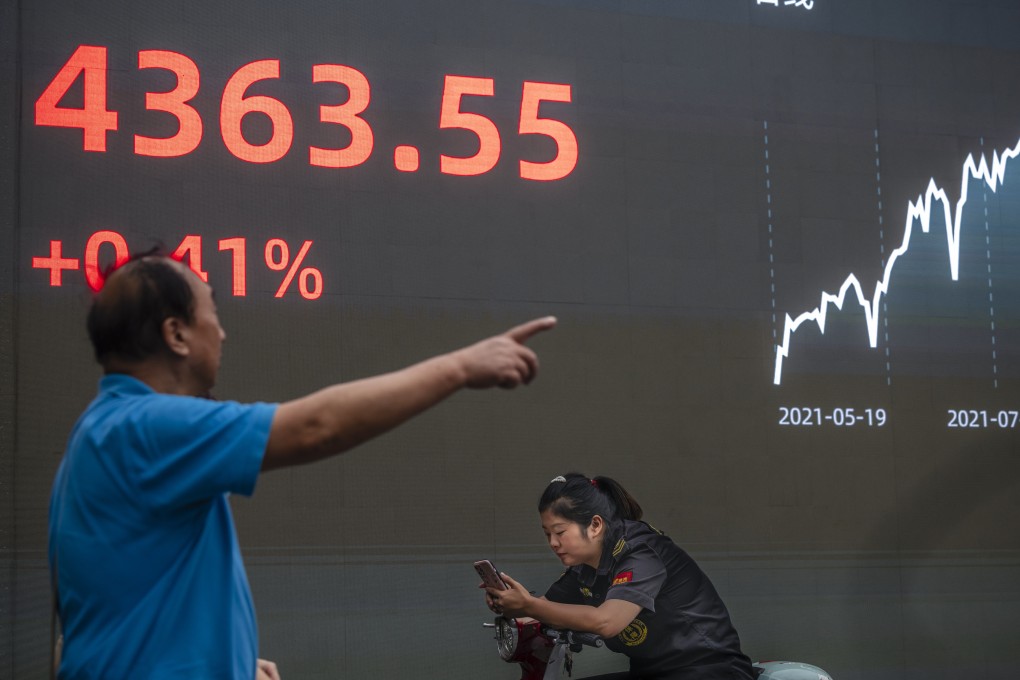Advertisement
China stocks are braced to break out this quarter as policymakers are poised to loosen policies amid property and power woes
- The availability of bank credit may increase to attract homebuyers back to the property market, said Haitong Securities
- The People’s Bank of China has several options in its policy tool kit to increase financial liquidity in the economy, said Citic Securities
Reading Time:3 minutes
Why you can trust SCMP

China’s stocks may break out from their sideways ambling of the previous quarter to advance in the final three months of 2021, as policymakers are likely to loosen monetary policies to mitigate any economic fallout from the nation’s power shortage and slumping home sales.
The availability of bank credit may increase to attract homebuyers back to the property market, giving a much-needed lift to one of the most important sectors of China’s economy, said Haitong Securities. The People’s Bank of China has several options in its policy tool kit to increase financial liquidity in the economy, while the economic planning agency can relax the tight grip on coal production to ease the nation’s power shortages, said Citic Securities.
“Market sentiment will improve as the economy is going to do better in the fourth quarter than in the previous one,” said Qiu Xiang, a strategist at Citic Securities, China’s biggest publicly traded brokerage. “A cut in the reserve requirement ratio (RRR) is still among the policy options, as [the central bank] needs an environment of liquidity to defuse the credit risk from the property market.”
Advertisement
The optimism will be welcomed news for investors tracking China’s benchmark CSI300 Index, which has fallen by nearly 7 per cent in the third quarter near the bottom of 92 of the world’s primary equity indexes tracked by Bloomberg. Only the Hang Seng China Enterprises Index (HSCEI) in Hong Kong, weighed down by indebted real estate developers like China Evergrande Group and Sunac China, performed worse during the same quarter.
The People’s Bank of China, the vanguard in the nation’s campaign to deflate any speculative bubble in the real estate industry, suspended its usual haranguing tone in mid-August when it called for a stable and healthy development of the industry. That is seen as a rare positive sign that top policymakers will relax the grip at a time when developers are facing increasing cash crunch amid sluggish home sales and difficulty in accessing funding, according to stockbrokers and analysts.
Advertisement
Advertisement
Select Voice
Choose your listening speed
Get through articles 2x faster
1.25x
250 WPM
Slow
Average
Fast
1.25x